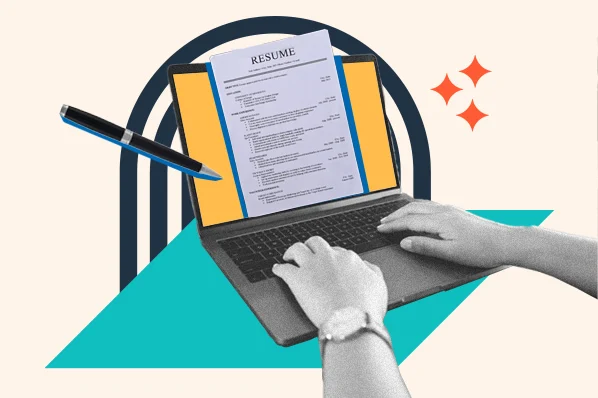Entry-level resume examples and writing tips
An employer’s first introduction to you will be through your resume. You have the chance to demonstrate to hiring managers in this document the expertise, experience, and other credentials that make you a qualified applicant for a position. Writing a strong entry-level resume may help you land the job you desire if you’re new to the workforce or your profession.
Entry-level position
When assessing candidates for an available position, employers frequently consider factors other than just work experience. The following are things an employer might like to see on your resume if you’re looking for an entry-level position in your field:
Hiring managers frequently take into account whether applicants are interested in the particular position that the employer is trying to fill or if they are simply looking for any job. By listing the significant qualifications you possess that will enable you to succeed in the position, you can use your resume to demonstrate why you are applying for the position. By examining whether the qualifications listed on a candidate’s résumé are relevant to the position, employers frequently gauge their interest.
Educational background & Experiences
When you’re looking for a job, your professional and educational backgrounds are important, but a hiring manager can also want to make sure your personality fits the role. If a hiring manager selects you for the position, you integrate into the community and culture of the business. By demonstrating your dedication to your work and enthusiasm for the industry, you can emphasise good personality traits on your resume in many different ways. Professional certifications, for instance, might attest to the fact that you have completed additional training in a certain subject or specialty.
You haven’t had the opportunity to explore managerial positions in your sector as an entry-level applicant yet. By outlining experiences you’ve had in previous related employment or as a part of your schooling, you can still demonstrate to hiring managers that you have leadership abilities and potential. For instance, if you held the position of club president while in college, this may have aided in your development as a leader. Similar to that, you can use these chances to show that you can effectively collaborate with others.
Major Tips
Consider these tips for organizing and including important information on your entry-level resume:
Choose the right format
Different formats are possible for resumes, but the main objective is to emphasise your pertinent experience and convince the hiring manager that you’re a suitable fit for the position. If you’re an entry-level job applicant, a functional resume that shows your qualifications could be helpful. This enables businesses to assess you as a candidate who is fresh to your field based on your strongest qualifications.
To keep it succinct and make sure the most crucial information is included, try to keep your resume to one page. Pick a common, readable typeface, such Calibri or Arial, and set the size to 10 or 12. To keep your resume organised and simple to read, you can use pre-set headings in your word processor or begin each new section with a bold typeface.
Even while you can use part of the same material on your resume for each job you apply for, it’s crucial to modify some sections so that they fit the position each time. To do this, look over the job description and figure out what credentials the employer is looking for. After that, compare them to your own knowledge, abilities, and experience to see if there are any resume-worthy prospects. You can mention it in your talents section, for instance, if the business is looking for a candidate who is familiar with a certain piece of software that you use.
Applicant tracking system
If a company has an application tracking system, keywords are crucial if you’re looking for a job there. (ATS). An applicant tracking system (ATS) is a programme that automatically examines each resume that the business receives and checks for the use of particular terms or phrases. If it does, the recruiting manager may receive the CV for review. A job description’s keywords may enable you to get past the ATS scanning stage.
When you’re finished, give your CV a thorough once-over before submitting it. You can use a spelling and grammar checker, such as one you can add to your web browser or one built into word processors. Verify the text for typographical, grammatical, and formatting flaws, and fix them as you find them.
You can also think about having a friend or coworker look through your CV. They can assist you in making sure your resume is error-free and has all the necessary information. Making sure your CV is well-written and thoroughly proofread demonstrates to potential employers your professionalism and attention to detail.
Portfolio
Even though a resume heading is a straightforward feature, it’s one of the most crucial. Your contact information can be found in this area, which is located at the top of your resume. Include your first and last names, a contact phone number, an email address, the city and state where you reside, and your home address. Make sure to provide an email address that clearly identifies you, such as one that has your first and last name or first initial and last name.
If you have a professional social media presence or online portfolio, you can also give a link to it. This is crucial if you want to work in a creative industry like writing, art, or graphic design.
Entry Level Resume Example
Name: David Nicholas
Contact Information:
Address: 123 Main Street, New Jersey USA 12345
Phone: (123) 456 Email: davidn@gmail.com
Objective:
To obtain an entry level accounting position, utilizing my analytical skills and business acumen to contribute to the growth and success of the organization.
Education:
Bachelor of Business Administration in Accounting, ABC University
Graduated: May 2023
GPA: 3.5/4.0
Relevant Coursework:
- Financial Accounting and Reporting
- Managerial Accounting
- Taxation
- Auditing Principles and Procedures
- Financial Statement Analysis
- Cost Accounting
Skills:
- Proficient in Microsoft Excel, Word, and PowerPoint
- Familiarity with accounting software, such as QuickBooks and Sage Accounting
- Strong analytical, problem-solving, and critical thinking skills
- Excellent communication and interpersonal abilities
- Detail-oriented with strong organizational skills
- Ability to prioritize tasks and work under pressure
Experience:
Intern, Company Name
New Jersey, USA
June 2022 – August 2023
- Assisted in preparing financial statements and tax returns for clients
- Conducted research on tax laws and regulations and prepared reports on findings
- Worked collaboratively with team members on various accounting projects
- Utilized accounting software to input and reconcile financial data
Volunteer, Company Name
September 2021 – December 2021
- Taught basic financial literacy concepts to low-income families in the community
- Assisted in creating lesson plans and activities for participants of all ages
- Communicated effectively with diverse groups and provided one-on-one assistance to participants who needed additional help
Certifications:
- Certified Public Accountant (CPA), expected completion date: 2024
Conclusions
Employers frequently demand that applicants have a portfolio that showcases their greatest work as well as the range of tasks they have experience finishing. A link to your web portfolio can help the recruiting manager learn more about your work and may persuade them to give you a chance.







